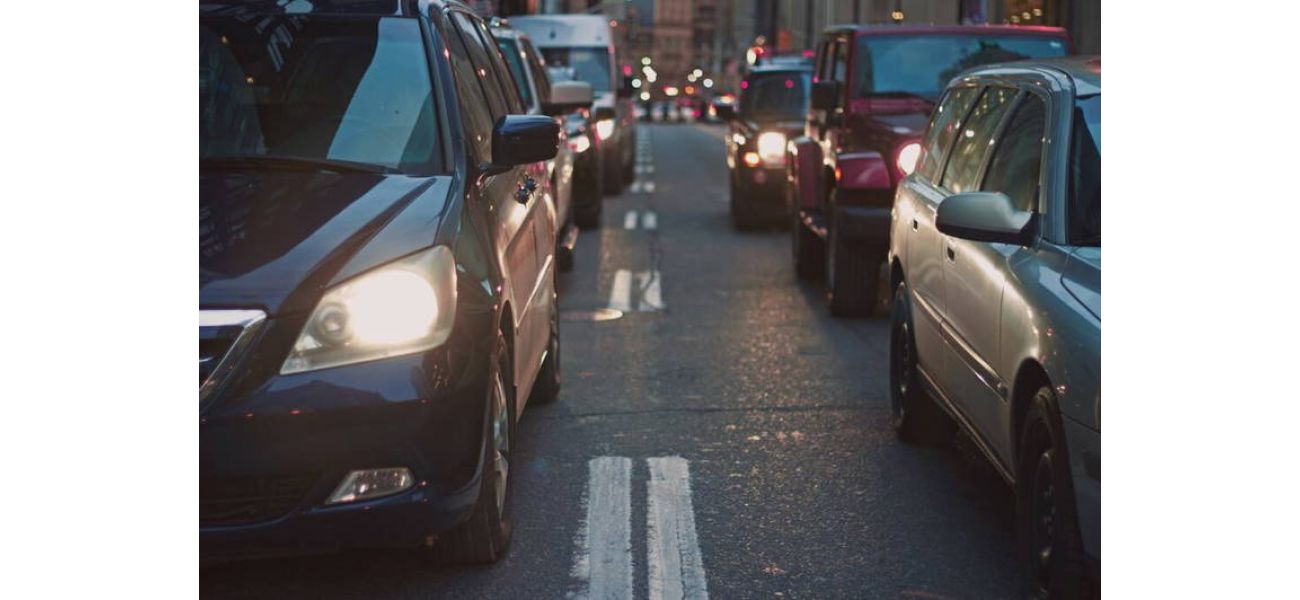More and more Americans are opting for long commutes to work.
Nurse Memwanesha Daniels must super-commute between Jacksonville and the Bay Area due to her job and lifestyle.
November 5th 2025.

There's no denying that for many Americans, patience is now a key virtue as they navigate the world of "super-commutes." This term, coined by a 2024 study from Stanford University, refers to journeys of over 75 miles each way. And since the COVID-19 pandemic, the number of people undertaking these long trips to work has increased by a staggering 32 percent.
Experts say that the rise in super-commutes is largely due to the growing availability of work-from-home opportunities. With fewer daily commutes, employees are often able to live further away from their workplace. This has led to a decrease in traffic congestion, making these lengthy journeys more manageable. The study also reveals that the average super-commute takes approximately 2 hours and 19 minutes one way.
For individuals like Memwanesha Daniels, a registered nurse with a unique lifestyle that involves traveling between Jacksonville and the Bay Area, super-commuting is a necessary part of her job. Daniels, who refers to herself as a "bicoastal nurse," lives with her boyfriend and three children in Jacksonville, Florida, but works in the San Francisco Bay Area.
In an interview with CNBC Make It, Daniels shared the benefits of living and working on two coasts. "I can save a lot, and it gives me a different type of life than what I would have tried to make things work in Florida," she stated. "Paying an extra $2,000 a month to make three times the amount I would make in Florida is very much worth it."
For the past four years, Daniels has been regularly flying between coasts for work. She typically works 12-hour shifts at a hospital in Oakland, where she earns an impressive hourly rate of over $100. And with the option to work overtime, she can sometimes bring in up to $25,000 a month. Her super-commute often involves early-morning flights from Jacksonville to the Bay Area, arriving around midday Pacific time. To make her life easier, she rents a one-bedroom apartment near her hospital for about $1,300 a month. Daniels estimates that she spends less than $500 a month on travel, flying round-trip twice a month.
"I love to fly, and I love to travel," Daniels shared. "Flying is relaxing for me." She even catches some sleep on the plane before heading straight to work. For Daniels, the payoff of her super-commute is both financial and personal. By working in California, she can provide more for her children while still maintaining her roots in Florida. "You still have to have a life," she explained, "but this one gives me choices."
Daniels' decision to embrace the time and travel demands in exchange for a higher salary is in line with the data, which suggests that long-distance commuting is becoming a common trade-off for professional workers seeking a balance between cost, location, and career growth. In fact, even as many remote workers are being called back to the office, they are still choosing to work from home. It seems that for some, the benefits of super-commuting outweigh the challenges.
Experts say that the rise in super-commutes is largely due to the growing availability of work-from-home opportunities. With fewer daily commutes, employees are often able to live further away from their workplace. This has led to a decrease in traffic congestion, making these lengthy journeys more manageable. The study also reveals that the average super-commute takes approximately 2 hours and 19 minutes one way.
For individuals like Memwanesha Daniels, a registered nurse with a unique lifestyle that involves traveling between Jacksonville and the Bay Area, super-commuting is a necessary part of her job. Daniels, who refers to herself as a "bicoastal nurse," lives with her boyfriend and three children in Jacksonville, Florida, but works in the San Francisco Bay Area.
In an interview with CNBC Make It, Daniels shared the benefits of living and working on two coasts. "I can save a lot, and it gives me a different type of life than what I would have tried to make things work in Florida," she stated. "Paying an extra $2,000 a month to make three times the amount I would make in Florida is very much worth it."
For the past four years, Daniels has been regularly flying between coasts for work. She typically works 12-hour shifts at a hospital in Oakland, where she earns an impressive hourly rate of over $100. And with the option to work overtime, she can sometimes bring in up to $25,000 a month. Her super-commute often involves early-morning flights from Jacksonville to the Bay Area, arriving around midday Pacific time. To make her life easier, she rents a one-bedroom apartment near her hospital for about $1,300 a month. Daniels estimates that she spends less than $500 a month on travel, flying round-trip twice a month.
"I love to fly, and I love to travel," Daniels shared. "Flying is relaxing for me." She even catches some sleep on the plane before heading straight to work. For Daniels, the payoff of her super-commute is both financial and personal. By working in California, she can provide more for her children while still maintaining her roots in Florida. "You still have to have a life," she explained, "but this one gives me choices."
Daniels' decision to embrace the time and travel demands in exchange for a higher salary is in line with the data, which suggests that long-distance commuting is becoming a common trade-off for professional workers seeking a balance between cost, location, and career growth. In fact, even as many remote workers are being called back to the office, they are still choosing to work from home. It seems that for some, the benefits of super-commuting outweigh the challenges.
[This article has been trending online recently and has been generated with AI. Your feed is customized.]
[Generative AI is experimental.]
0
0
Submit Comment





